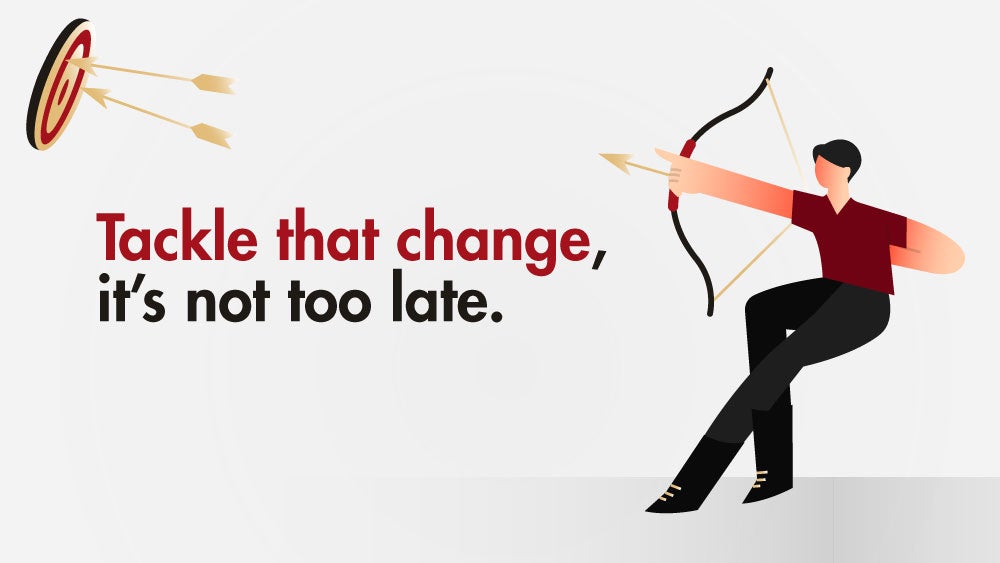
Am I Too Late for a Career Change?
Changing your career can be especially daunting when you’ve clocked in a fair bit of experience in your current job. The fear of the unknown and the misconception that it might be too late can hold you back.
However, you may not be the only one contemplating a career change. According to the U.S. Department of Labor, the average person will change careers 5-7 times during their working life, and approximately 30% of their total workforce will change jobs every 12 months.
Answering the question of if you should or should not make a career change, is one that needs some self-reflection and relearning. Here are some pointers to help you in your decision.
What is a Career Change?
A career change, which can be mistaken for a regular job switch, is when you shift your professional path to an entirely new field or industry. If you are looking to switch your job within the same field and industry, then you’re likely looking for a job switch instead of a career change.
Pivoting your career path means embracing a different set of skills, knowledge, and responsibilities. Many people associate career changes with their 20s or early 30s, but statistics tell a different story.
Did you know that the average age of Americans changing their careers stands at 39, while statistics also state that middle-aged workers are most likely to make a major career change? The reality is that pivoting your career can happen at any age, and they often do.
Nevertheless, it’s important to differentiate between a midlife career crisis versus a midlife crisis. While they may sound similar, they represent entirely different life experiences. A midlife career crisis relates specifically to one's professional journey, where you reassess career choices, seek new challenges, or pursue alternative paths in search of professional fulfilment.
On the other hand, a midlife crisis spans through a broad spectrum of life aspects and is where one makes significant life changes that may extend beyond the professional realm.
Understand Why You Want a Career Change
Understanding why you want a career change is key – weighing out your reasons gives you a clearer picture to decide if it is the right move for you.
The decision for a midlife career change often stems from a deep sense of longing or a desire for personal growth. You might have discovered a calling you can't ignore, a passion project waiting to be pursued, or a need for a better work-life balance.
These motivations are entirely valid and shared by countless others who have successfully made career pivots. It's essential to take the time to listen to your heart, reflect on your aspirations, and seek mental clarity before embarking on this transformative journey.
In light of that, we’ve listed some reasons why a midlife career change might be wise for you.
-
Passion and fulfilment: If you feel a deep passion for a different career path, pursuing it can lead to greater personal satisfaction and a sense of purpose.
-
Unhappiness in your current role: If your current career, especially your day-to-day work life, leaves you constantly unhappy, stressed, or unfulfilled, it might be a sign that a change is needed to improve your overall well-being.
-
Alignment with values: If your current career conflicts with your personal values or ethics, switching to a more aligned field can bring a greater sense of integrity and harmony.
-
Desire for growth: If you have a strong desire for personal growth and new challenges, a career change can provide the opportunity to continually learn and evolve.
-
Better work-life balance: If your current career demands too much of your time and negatively affects your personal life, a new career with improved work-life balance can be appealing.
However, menial reasons such as a fallout with your superior, or exhaustion from a toxic workplace should not be reasons to make a career change. Instead, a job switch might be more appropriate as those factors do not affect your field or industry. The pursuit of career satisfaction and fulfilment should be your driving force.
Remember, a midlife career crisis is not the same as a midlife crisis. So, be sure to evaluate and reflect on your mental state before you make a career change.

Step Out of Your Comfort Zone
Often, those contemplating a career change face self-doubt and fear. Looming thoughts such as "Am I too late?" or "Am I wasting my previous education and experience?" may cloud your judgement. To make the change, it's crucial to shift this mindset.
Confront these fears head-on and step out of your comfort zone. Don't let these concerns become excuses that hold you back. Embrace change as an opportunity for growth, and prioritise your job satisfaction above all else.
Remember, this journey is about fulfilling your own aspirations, not anyone else's expectations.
How to transition to a new role
Transitioning to a new career path requires careful planning and execution. Here are some quick notes on how you can get started.
-
Start by setting realistic goals and managing your expectations. It is likely that you will have to move from the ground up - which means a possibility of a pay cut or starting from a more junior position in your new field.
-
Seek guidance from individuals who have successfully made similar career shifts and find mentors who can offer valuable insights. Doing this can help you understand the realities of the new career.
-
Expand your professional network within your target industry. Get in touch with people to find out what skills are required and the job’s nature. This way, you will be able to identify any skill gaps that may exist between your current skill set and the requirements of your desired career.
-
Invest in upskilling and developing transferable skills that can make you more competitive in your chosen field. With such online resources and classes, it’s become much easier to upskill and learn about a potential new career path. It might be worth checking out HELP University Online’s programmes, built especially for working professionals.
-
Plan your finances accordingly and outline the potential changes in income, as well as expenses.
Don’t Be Afraid, Put Your Mind to It
Changing your career will ultimately feel like hitting the reset button. However, it doesn’t have to feel like that. Instead, you could harness your soft skills such as communication, adaptability, and decision-making into your new career possibilities.
A midlife career change in your 30s or 40s is not only possible but also potentially rewarding.
Ultimately, the decision to change careers is deeply personal, and you have the power to determine what's best for you. So, if you're considering a career change, embrace the opportunity, follow your heart, and embark on a fulfilling journey towards a new and exciting path. Your future career success is in your hands.
